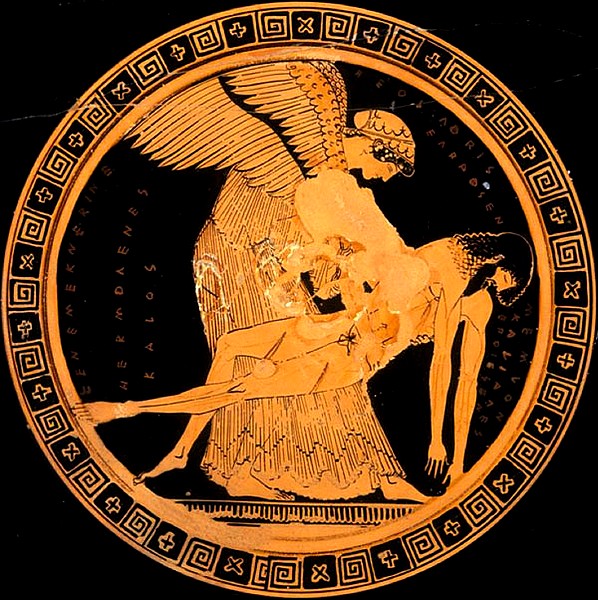
August arrived, it's the time for the Schubertíada. The four weeks of this month will be dedicated to going over eight of the concerts in Vilabertran, paying attention to the songs we listened so far. The ninth concert is that of the Acadèmia and we won't know the programme until a couple of days before so I don't think I can talk about it. As always, I hope these short posts are useful to those of you attending the recitals, and all the readers will have a new song.
Most of the concerts are concentrated in a few days, that's why I'll group them by topic rather than chronologically; these posts are supposed to be brief. We're beginning with Schubert, because five recitals are entirely dedicated to him; we will talk about the three cycles next week and today we will focus on the two that have a selection of Lieder.
Saturday 17 August. Christiane Karg and Gerold Huber
Christiane Karg has chosen for her return to Vilabertran a demanding programme with three different groups: one of mythological inspiration, one about Mignon and the third one focused on Italian songs and arias. We've heard four of the works so far, enough to have a look at each group:
Monday 26 August. Matthias Goerne and Alexander Schmalcz
Matthias Goerne and Alexander Schmalcz will perform two recitals this year, that marks the 25th anniversary of the baritone's debut in Vilabertran. At the second recital, they come back to Schubert for the first time after the three cycles in 2014. We listened so far to these five lieder's from the intense program they prepared:
- Der Wanderer
- Der Jüngling und der Tod
- Wer nie sein Brot mit Tränen aß
- Des Fischers Liebesglück
- Abendstern
If you check the complete programmes you will realise that Karg and Goerne coincide to sing Wilhelm Meister's songs. We only listened to two of their proposals, but some time ago I talked in a really long series about all of the songs, explaining their context in the novel, and I suggest versions from different composers. If you want to recall who is Mignon, sung by Christiane Karg, and who is the harpist, sung by Matthias Goerne, here you are some information.
The new song added to this list of pieces already heard is one of the mythological lieder Christiane Karg will sing: Memnon. Our story takes place in the Trojan War. Before he's killed by Paris, Achilles fights with Memnon, son of Eos, king of Ethiopia and nephew of Priam (so a cousin of Paris; a table of kinship would be very useful to me when talking about his war). Eos, the goddess of the dawn, begs Zeus to return her son; the king of the gods doesn't bring Memnon back to life, but he grants his mother a grace, that she will be able to see him alive and to caress him with his rosy fingers every day, when she opens the doors of heaven so as her brother Helios can begin his journey. That will be last just a few moments.
Johann Mayrhofer's poem is the mourning of Memnon from death, as he waits for this moment when he will be alive again and his voice will be heard, a voice that humans perceive as music. Schubert wrote with his friend's verses a beautiful song, probably less well-known than it should be; I invite you to listen to it, not sung by Christiane Karg but by another of the great voices at the Schubertíada, tenor Christoph Prégardien, accompanied by Andreas Staier. I hope you like it and that we will meet in Vilabertran!
Den Tag hindurch nur einmal mag ich sprechen,
Gewohnt zu schweigen immer und zu trauern:
Wenn durch die nachtgebor’nen Nebelmauern
Aurorens Purpurstrahlen liebend brechen.
Für Menschenohren sind es Harmonien.
Weil ich die Klage selbst melodisch künde
Und durch der Dichtung Glut des Rauhe ründe,
Vermuten sie in mir ein selig Blühen.
In mir, nach dem des Todes Arme langen,
In dessen tiefstem Herzen Schlangen wühlen;
Genährt von meinen schmerzlichen Gefühlen
Fast wütend durch ein ungestillt Verlangen:
Mit dir, des Morgens Göttin, mich zu einen,
Und weit von diesem nichtigen Getriebe,
Aus Sphären edler Freiheit, aus Sphären reiner Liebe,
Ein stiller, bleicher Stern herab zu scheinen.
The whole day long I may only speak once,
accustomed to being constantly silent and mourning:
when, through the night-begotten walls of mist
Aurora's purple beams lovingly break.
To human ears this is harmony.
Because I proclaim my lament so melodically
and through the glow of poetry remold its roughness,
they suppose in me a joyous bloom.
But in me, for whom Death's arms reach,
and in the depths of whose heart burrow serpents,
nourished by my painful thoughts,
I am almost frenzied with unappeased desire
to unite myself with you, O Goddess of the Morning,
and, far from this futile bustle,
from the spheres of noble freedom and pure love,
to shine down as a silent, pale star.
(translation by Emily Ezust)














Comments powered by CComment